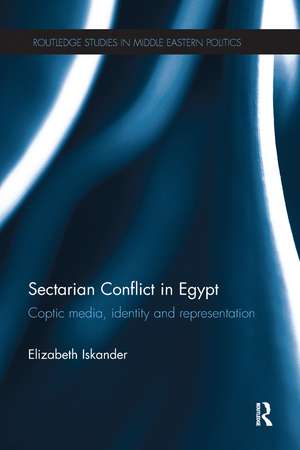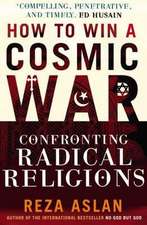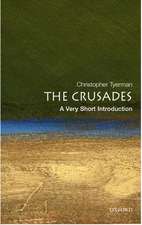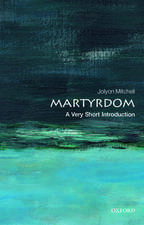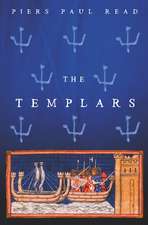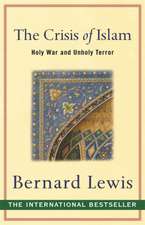Sectarian Conflict in Egypt: Coptic Media, Identity and Representation: Routledge Studies in Middle Eastern Politics
Autor Elizabeth Iskanderen Limba Engleză Paperback – 16 iun 2017
Focusing on Egypt’s largest religious minority group, the Coptic Orthodox Christians, this book explores how national, ethnic and religious expressions of identity are interwoven in the narratives and usage of the press and Internet. In doing so it offers insights into some of Egypt’s contemporary social and political challenges, and recognises the ways that media are involved in constructing and reflecting formations of identity politics. The author examines in depth the processes through which identity and belonging are negotiated via media discourses within the wider framework of changing political realities in Egypt. Using a combination of methodological approaches - including comprehensive surveys and content analysis - the research offers a fresh perspective on the politics of identity in Egypt.
| Toate formatele și edițiile | Preț | Express |
|---|---|---|
| Paperback (1) | 299.52 lei 6-8 săpt. | |
| Taylor & Francis – 16 iun 2017 | 299.52 lei 6-8 săpt. | |
| Hardback (1) | 850.37 lei 6-8 săpt. | |
| Taylor & Francis – 31 mai 2012 | 850.37 lei 6-8 săpt. |
Din seria Routledge Studies in Middle Eastern Politics
-
 Preț: 311.41 lei
Preț: 311.41 lei -
 Preț: 280.08 lei
Preț: 280.08 lei -
 Preț: 309.89 lei
Preț: 309.89 lei -
 Preț: 302.13 lei
Preț: 302.13 lei - 9%
 Preț: 1004.93 lei
Preț: 1004.93 lei - 18%
 Preț: 1065.06 lei
Preț: 1065.06 lei - 18%
 Preț: 1170.14 lei
Preț: 1170.14 lei - 12%
 Preț: 300.49 lei
Preț: 300.49 lei - 18%
 Preț: 1057.57 lei
Preț: 1057.57 lei - 12%
 Preț: 300.49 lei
Preț: 300.49 lei - 18%
 Preț: 1162.08 lei
Preț: 1162.08 lei - 26%
 Preț: 850.37 lei
Preț: 850.37 lei - 18%
 Preț: 1066.09 lei
Preț: 1066.09 lei - 18%
 Preț: 1057.05 lei
Preț: 1057.05 lei - 18%
 Preț: 1059.48 lei
Preț: 1059.48 lei - 18%
 Preț: 1166.49 lei
Preț: 1166.49 lei - 18%
 Preț: 1067.14 lei
Preț: 1067.14 lei - 25%
 Preț: 854.33 lei
Preț: 854.33 lei -
 Preț: 418.22 lei
Preț: 418.22 lei -
 Preț: 341.20 lei
Preț: 341.20 lei -
 Preț: 412.27 lei
Preț: 412.27 lei - 18%
 Preț: 1066.09 lei
Preț: 1066.09 lei - 18%
 Preț: 1056.00 lei
Preț: 1056.00 lei -
 Preț: 289.05 lei
Preț: 289.05 lei - 18%
 Preț: 1060.87 lei
Preț: 1060.87 lei - 18%
 Preț: 996.33 lei
Preț: 996.33 lei - 18%
 Preț: 1055.84 lei
Preț: 1055.84 lei - 18%
 Preț: 1056.00 lei
Preț: 1056.00 lei - 18%
 Preț: 1061.57 lei
Preț: 1061.57 lei - 26%
 Preț: 822.36 lei
Preț: 822.36 lei - 18%
 Preț: 1060.52 lei
Preț: 1060.52 lei - 18%
 Preț: 1439.85 lei
Preț: 1439.85 lei - 18%
 Preț: 1163.19 lei
Preț: 1163.19 lei - 18%
 Preț: 1057.75 lei
Preț: 1057.75 lei - 26%
 Preț: 821.29 lei
Preț: 821.29 lei - 18%
 Preț: 1058.79 lei
Preț: 1058.79 lei - 18%
 Preț: 1057.75 lei
Preț: 1057.75 lei - 18%
 Preț: 1056.32 lei
Preț: 1056.32 lei - 18%
 Preț: 1058.43 lei
Preț: 1058.43 lei - 25%
 Preț: 824.70 lei
Preț: 824.70 lei - 18%
 Preț: 1060.25 lei
Preț: 1060.25 lei - 18%
 Preț: 1060.87 lei
Preț: 1060.87 lei - 18%
 Preț: 1071.30 lei
Preț: 1071.30 lei - 26%
 Preț: 820.03 lei
Preț: 820.03 lei - 18%
 Preț: 1056.35 lei
Preț: 1056.35 lei - 18%
 Preț: 1057.05 lei
Preț: 1057.05 lei
Preț: 299.52 lei
Preț vechi: 341.55 lei
-12% Nou
Puncte Express: 449
Preț estimativ în valută:
57.32€ • 59.45$ • 47.79£
57.32€ • 59.45$ • 47.79£
Carte tipărită la comandă
Livrare economică 27 martie-10 aprilie
Preluare comenzi: 021 569.72.76
Specificații
ISBN-13: 9781138117037
ISBN-10: 113811703X
Pagini: 240
Dimensiuni: 156 x 234 x 19 mm
Greutate: 0.45 kg
Ediția:1
Editura: Taylor & Francis
Colecția Routledge
Seria Routledge Studies in Middle Eastern Politics
Locul publicării:Oxford, United Kingdom
ISBN-10: 113811703X
Pagini: 240
Dimensiuni: 156 x 234 x 19 mm
Greutate: 0.45 kg
Ediția:1
Editura: Taylor & Francis
Colecția Routledge
Seria Routledge Studies in Middle Eastern Politics
Locul publicării:Oxford, United Kingdom
Public țintă
Postgraduate and UndergraduateCuprins
Introduction Part 1: Copts, Copticness and the Egyptian Media 1. The Contemporary Coptic Community: Between the State and the Church 2. The Egyptian Press in National Political Life 3. Copts Online: The Impact of the Internet on Coptic Politics Part 2: Copts and National Representation in the Mubarak-Shenouda Era 4. The Coptic Orthodox Church as a Media and Political Actor 5. Discoursing National Belonging: National Unity versus Sectarianism Part 3: Challenging Regimes of Representation 6. Resisting Church Authority through Media: Dissent and Legitimacy 2005-2010 7. Revolution and Political Crisis: Shifting Discourses and Relations of Power 8. Copts, Sectarianism and Citizenship in Post-25 January Egypt. Conclusion
Notă biografică
Elizabeth Iskander is a Research Fellow in Modern Middle East Studies at the University of Cambridge. She has previously held fellowships at the London School of Economics, the German Institute for Global and Area Studies, and the University of Warwick. She holds a PhD in Politics and International Studies from the University of Cambridge. She researches the modern history, politics and culture of the Arabic-speaking world, with a focus on collective identities, sectarianism, the nation and Arab political thought.
Recenzii
"This book offers an extensive and up-to-date study of the escalating sectarian conflict in Egypt and its representation in the Coptic media since 2005." Jacqueline Hoover, University of Nottingham, UK
Descriere
Focusing on Egypt’s largest religious minority group, the Coptic Orthodox Christians, this book explores how national, ethnic and religious expressions of identity are interwoven in the narratives and usage of the press and Internet. It also offers insights into two of modern Egypt’s biggest political challenges: preventing sectarian conflict and managing the relationship between religion and politics.
